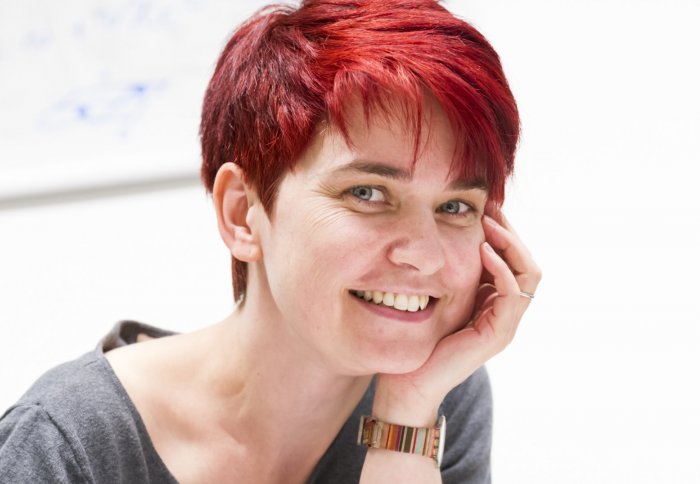New professorship for nanotechnology research into how materials behave

Women in Engineering Day off to a good start with the announcement of the Shell/Royal Academy of Engineering Research Chair for Professor Mary Ryan.
Professor Ryan leads Shell’s programme for Materials and Corrosion at Imperial’s Department of Materials. The programme was set up to help industry develop new ways to manage and protect equipment by providing a better understanding of how to predict the behaviour of materials. Finding ways to reduce corrosion is a serious challenge for industry, estimated to cost the global economy upwards of $2.2 trillion annually.
Professor Ryan’s new chair is for Interfacial Nanoscience for Engineering Systems, to carry out the underpinning research to link what goes on at the nanoscale to large-scale corrosion – ultimately to make industrial processes safer, more predictable and more efficient.
Huge honour
“It is a huge honour to be awarded this prestigious Chair,” said Mary Ryan, Professor of Materials Science and Nanotechnology. “My work focusses on the nanoscale processes that can cause macroscopic failures. A major challenge is in understanding how materials react in real-world environments.
“We will use state-of the-art facilities and exploit developments in synchrotron science to develop new in-situ approaches to study complex systems over timescales relevant to industrial processes. We will also continue to work on using nanotechnology techniques to develop new protective materials such as smart antimicrobial coatings. These respond to changes in the surrounding environment to provide effective, environmentally friendly alternatives to conventional treatments.”
"I would like to congratulate Mary on this exciting appointment”, said Professor Jeff Magee, Dean of the Faculty of Engineering at Imperial College London. “This research chair reflects Imperial’s priorities in developing multidisciplinary research and in fostering collaborations with other organisations. I am grateful for this support, and look forward to the College continuing to make a real contribution to solving the challenge of corrosion.”
I am delighted that we are able to announce this important new research chair appointment on National Women in Engineering Day
– Professor Dame Ann Dowling
President, Royal Academy of Engineering
“I am delighted that we are able to announce this important new research chair appointment on National Women in Engineering Day”, said Professor Dame Ann Dowling DBE FREng FRS, President of the Royal Academy of Engineering. “Professor Ryan’s work on advanced materials and corrosion is a crucial area for collaborative development between academia and industry and I am delighted that Shell is co-sponsoring the appointment.”
Shell, the industrial partner sponsoring the Chair, is working on developing tools that will help enhance asset lifetime, performance and management in the energy industry although the work will impact across many materials sectors in industry and medicine.
Corrosion minimisation and effective risk management is a primary technological challenge
– Erik Bonino
Chairman, Shell UK Limited
“Corrosion minimisation and effective risk management is a primary technological challenge and we welcome this exceptional opportunity to increase the understanding of degradation processes and failure mechanisms using a nanoscience approach”, said Erik Bonino, Chairman Shell UK Limited / Executive Vice President Downstream Technology
“The design of sophisticated next-generation anti-corrosion protocols and accurate lifetime predictions is exceptionally challenging and requires a dedicated multi-disciplinary approach to provide the holistic understanding which will ultimately lead to greatly enhanced engineering performance and real world impact. We’re looking forward to welcoming Professor Ryan and the research team into our technology centres around the globe to further the understanding of the technical challenges, to drive technical innovation and to support the development of transferrable methodology in this critical area of research.”
Article text (excluding photos or graphics) © Imperial College London.
Photos and graphics subject to third party copyright used with permission or © Imperial College London.
Reporter
Natasha Martineau
Enterprise